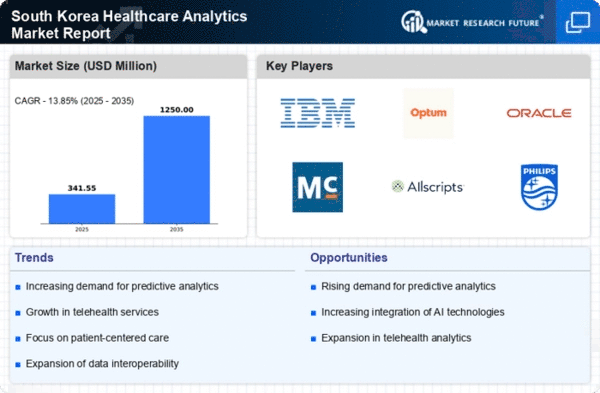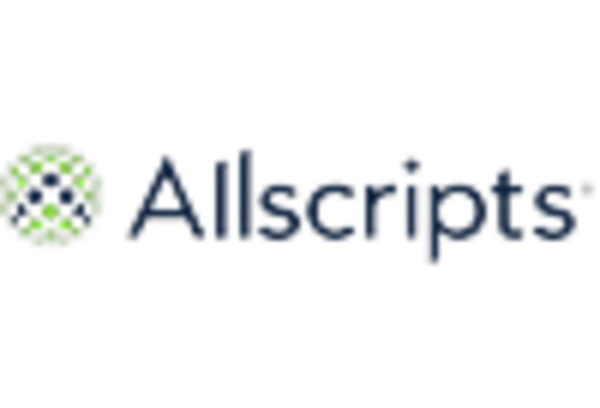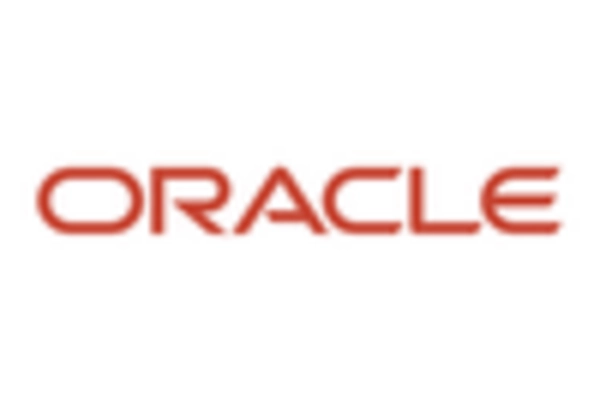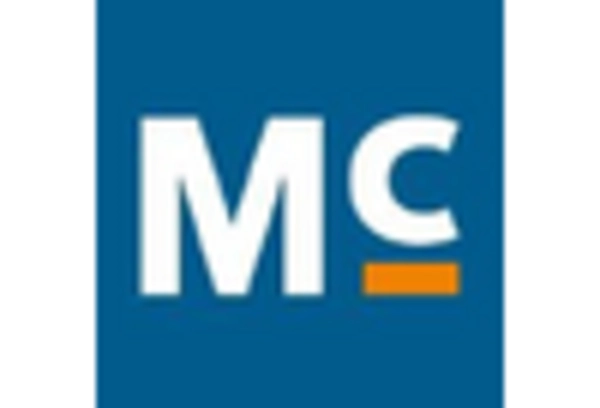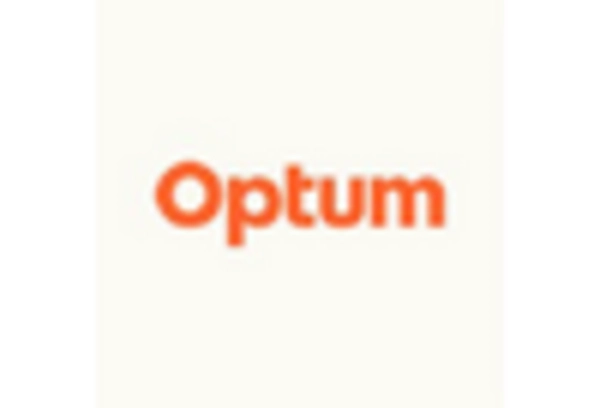Government Initiatives and Funding
Government initiatives play a pivotal role in shaping the healthcare analytics market in South Korea. The government has been actively promoting the use of advanced analytics in healthcare through various funding programs and policy frameworks. For instance, recent investments amounting to over $100 million have been allocated to support the development of healthcare IT infrastructure, which includes analytics capabilities. These initiatives aim to enhance the quality of care and streamline healthcare processes. Furthermore, the government's commitment to digital transformation in healthcare is likely to foster an environment conducive to the growth of the healthcare analytics market. By providing financial support and establishing regulatory frameworks, the government is facilitating the adoption of analytics solutions, thereby driving market expansion.
Growing Emphasis on Patient-Centric Care
The healthcare analytics market is witnessing a growing emphasis on patient-centric care in South Korea. Healthcare providers are increasingly focusing on understanding patient needs and preferences, which necessitates the use of analytics to gather and interpret patient data. This shift towards personalized care is reflected in the rising investments in analytics tools that enable providers to tailor treatments and improve patient engagement. Reports indicate that approximately 60% of healthcare organizations are prioritizing patient-centric strategies, which are expected to enhance the overall patient experience. As the demand for personalized healthcare solutions continues to rise, the healthcare analytics market is likely to benefit from this trend, as analytics tools become integral to developing patient-centered approaches.
Advancements in Technology and Infrastructure
Technological advancements are significantly influencing the healthcare analytics market in South Korea. The rapid evolution of data analytics technologies, including machine learning and big data analytics, is enabling healthcare organizations to process vast amounts of data efficiently. Additionally, improvements in IT infrastructure, such as cloud computing and data storage solutions, are facilitating the integration of analytics into healthcare systems. As a result, healthcare providers are increasingly adopting sophisticated analytics tools to enhance operational efficiency and patient care. The market is projected to grow at a CAGR of around 20% over the next five years, driven by these technological advancements. This trend indicates a strong potential for innovation within the healthcare analytics market, as organizations seek to leverage technology for better healthcare outcomes.
Rising Demand for Data-Driven Decision Making
The healthcare analytics market in South Korea is experiencing a notable surge in demand for data-driven decision making. Healthcare providers are increasingly recognizing the value of leveraging data analytics to enhance patient outcomes and operational efficiency. This trend is underscored by a reported growth rate of approximately 25% in the adoption of analytics solutions among hospitals and clinics. As healthcare organizations strive to improve service delivery and reduce costs, the integration of analytics into clinical workflows becomes essential. The ability to analyze patient data in real-time allows for more informed decisions, ultimately leading to better healthcare delivery. This rising demand for data-driven insights is likely to propel the healthcare analytics market forward, as stakeholders seek innovative solutions to meet the evolving needs of patients and healthcare systems.
Increasing Focus on Cost Reduction and Efficiency
An increasing focus on cost reduction and operational efficiency among healthcare providers in South Korea is driving the market. As healthcare costs continue to rise, organizations are seeking ways to optimize their operations and reduce unnecessary expenditures. Analytics solutions provide valuable insights that help identify inefficiencies and streamline processes, leading to significant cost savings. Reports suggest that healthcare organizations that implement analytics can achieve up to 30% reduction in operational costs. This focus on efficiency is likely to propel the adoption of analytics tools, as providers aim to enhance their financial sustainability while maintaining high-quality care. Consequently, the healthcare analytics market is expected to expand as organizations prioritize cost-effective solutions.


